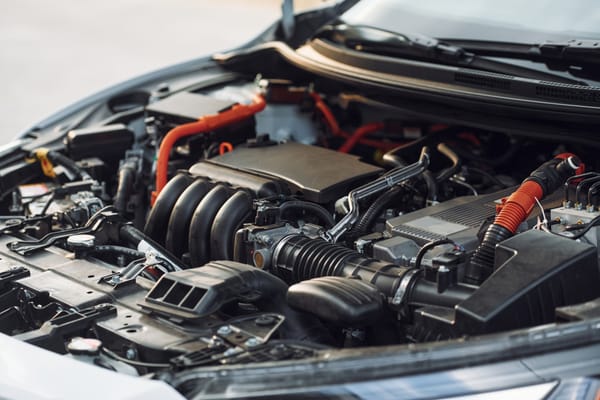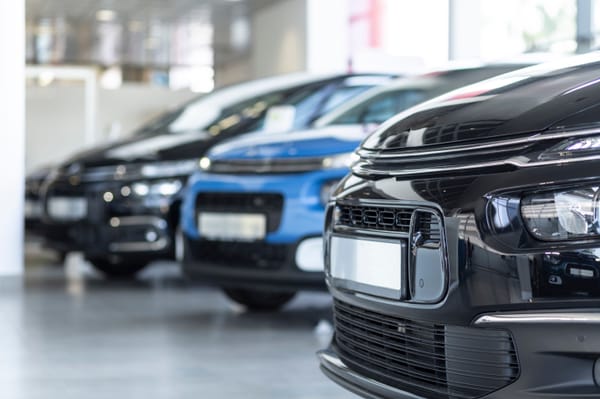What Does ‘Value for Money’ Really Mean When Buying a Used Car?

We all know the saying: "Cheap is expensive."
Nowhere is this truer than in the used car market. A cheap car isn't always a good-value car. That "deal" you got can quickly become your most expensive mistake. That car may be hiding rust, a failing gearbox, or endless trips to the mechanic.
Value for money isn't finding the cheapest car. It’s finding the smartest one. It's the best mix of price, reliability, running costs, and peace of mind.
So, how do you ensure that you get the best deal when buying a used car? Read on!
The Four Pillars of Value for Money
To know if a car is really a good deal, you must check four things. Think of it as a 4-point checklist for your cash.
- Price vs Market: Is the asking price realistic compared to other similar cars?
- True Running Cost: What will you actually spend per month on fuel, insurance, and repairs?
- Risk & Verification: Is the car’s condition verified? Does it have a clean history?
- Suitability & Future Value: Does the car fit your life? And can you sell it later?
Let's explore each pillar.
Price vs Value
The price tag is just the beginning of the story.
A Nissan Note E-Power priced at Ksh 900,000 might look attractive until you discover similar models are selling for Ksh 1.4 million.
That gap should make you curious, not excited. Maybe the owner needs quick cash. Or maybe the car has hidden issues that justify the discount.
- Here's your quick rule: if a car is 10–15% below comparable listings, ask why. Check at least three similar cars (same year, mileage, trim) to understand the market range. Kenya's used car market shows average price variations, but real-time comparisons matter more.
Be alert for red flags. "Urgent sale" or "leaving the country" are classic tricks. If the seller has no documents, kaa rada.
Actionable Tip: Don't just guess the market price. Get a Peach Valuation to see what similar cars have actually sold for. This gives you real market context, not just a seller's hope.
Running Costs
The purchase price is one thing. Monthly ownership is another beast entirely.
Let's break down what "affordable" really means. Say you're eyeing a 2012 Subaru Impreza at Ksh 1.2 million. The repayment might be manageable, but have you factored in:
- Comprehensive insurance (roughly Ksh 60,000–80,000 annually)
- Fuel costs for a 1.5L engine (around Ksh 12,000–15,000 monthly in Nairobi traffic)
- and maintenance?
Popular models like the Toyota Fielder or Nissan Note have readily available parts and mechanics who know them inside out. A rare import might look cool, but finding parts can be a nightmare. This affects both your wallet and your stress levels.
Here's the formula: Monthly repayment + fuel + insurance + average maintenance = your real monthly cost.
For example:
- Loan repayment: Ksh 35,000
- Fuel: Ksh 13,000
- Insurance (monthly): Ksh 6,000
- Maintenance reserve: Ksh 5,000
Total: Ksh 59,000/month
If that number makes you uncomfortable, you're looking at the wrong car. Keep in mind that fuel prices fluctuate all the time. Check the latest EPRA fuel prices and be realistic about your daily commute.
Actionable tip: Always calculate the 12-month ownership cost before signing anything. If you can't afford it for a year, you can't afford the car.
Risk & Verification
Usibuy story. (Don't buy stories). Buy facts.
This is where smart buyers separate themselves from regretful ones.
Value means confidence. And confidence comes from verification, not promises.
- Get an Inspection: A 288-point inspection checks everything from brake pad thickness to engine compression, transmission health, and chassis integrity. It's not paranoia, it's due diligence.
- Check the logbook for encumbrances. If there's a lender's name stamped on it, that car is collateral for someone's loan. Buying it without clearing that debt can land you in legal issues you don't need.
- Ask about accident history. A car that's been in a serious crash might look fine after a respray, but structural damage affects safety and resale value. Independent mechanics can spot signs of major repairs that sellers conveniently forget to mention.
Your verification checklist should look something like:
- Complete inspection report (not just a verbal assurance)
- Clean logbook with no encumbrances
- Service history and receipts
- Test drive with someone who knows cars
Don't skip the test drive. Listen for strange noises, feel for vibrations, and test the AC, brakes, and gears properly. If the seller rushes you or refuses an independent inspection, walk away. Genuine sellers have nothing to hide.
Actionable Tip: Insist on seeing the full inspection report and service receipts. If a seller is cagey about inspection, that’s your answer.
Suitability and Resale
Value isn't about impressing your pals at Java. It's about buying what works for your life.
- If you're doing mostly city driving in Nairobi traffic, an automatic transmission saves your sanity. Manual might feel "sporty," but your left leg will hate you after two hours on Mombasa Road.
- For upcountry trips or heavy loads, diesel engines offer better torque and fuel economy on highways.
- Family buyers need space. A sleek sedan looks nice, but where will the shopping bags, baby stroller, and weekend luggage fit? Boot space and rear legroom matter when you're ferrying kids to shagz.
- Think resale, too. White, silver, and grey cars sell faster than bright colours. Market trends show buyers prefer neutral tones.
- Full service history adds value, a car with stamped service booklets from authorised dealers commands better prices than one with no records.
Quick rule: Buy for the next three years, not the next three months. Choose what will serve you reliably throughout that period.
Actionable tip: Write down your main use-case (daily commute, family weekends, business trips) and score each car 1–5 on how well it fits. Anything below 4 needs serious reconsideration.
Quick Decision Tools: 3 Tests Before You Say “Yes”
Feeling ready? Run these three final tests on any car you are serious about.
- The 10% Price Test: Is the price within 10% of similar verified listings? If it's much cheaper, you must have a proven, good reason why.
- The 12-Month Cost Check: Have you calculated the total monthly cost (repayment, fuel, insurance)? Can you comfortably afford it?
- The Verification Gate: Is there a clean, recent inspection report? Is the logbook free of encumbrances?
If a car fails even one of these tests, hit the brakes. It doesn't mean you must walk away. It means you must investigate and get clear answers before you send any money.
Real Buyer Scenarios
Here’s how this framework works in real life.
- Starter: Mercy chose a 2010 Toyota Fielder over a flashier 2013 Nissan Tiida. The Fielder had a full inspection report and lower running costs. Two years later, she's had zero major repairs and saved enough to upgrade.
- Urban Family: James needed space for his growing family. He turned down a sleek Mazda Atenza for a slightly older Honda CR-V with reliable AC and more boot space. His wife thanks him every weekend.
- Grower: Brian was upgrading. He paid a small premium for a double-cab Toyota Hilux with verified low mileage and a full service history. Eighteen months later, he sold it fast and lost very little money. He won on resale value.
See the pattern? Smart buyers prioritize verification, suitability, and total cost over headline price or aesthetics.
How Peach Cars Makes Value Easy
We built our process around these four pillars to make value obvious. We don't just sell cars. We provide confidence.
- Pillar 1 (Price): Our Peach Valuation tool gives you real-time market data.
- Pillar 3 (Risk): Our 288-point inspection is the most detailed in Kenya. You see the full report before you buy.
- Pillar 3 (Risk): All our listings are verified. We check the logbook and history, so you don't have to.
- Pillar 4 (Resale): When you're ready to sell, our trade-in and listing options help you get the best price, fast.
Buy Smart, Not Just Cheap
Value for money isn't finding the cheapest car.
It’s finding the right car, at the right price, with its condition verified. It’s about knowing the total cost you're signing up for.
Don't let a low price tag blind you to high running costs and hidden risks.
Before you make an offer, run the 3 tests. Ask for the inspection report. And use a valuation tool to check if the price is fair.
Ready to see what real value looks like? Browse our latest verified listings or get a free, instant Peach Valuation on your current car today.




